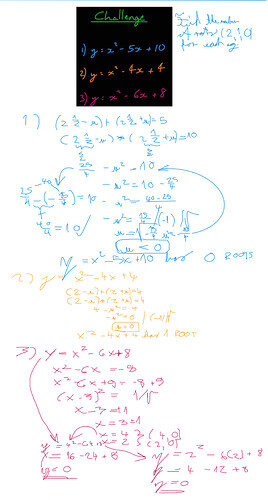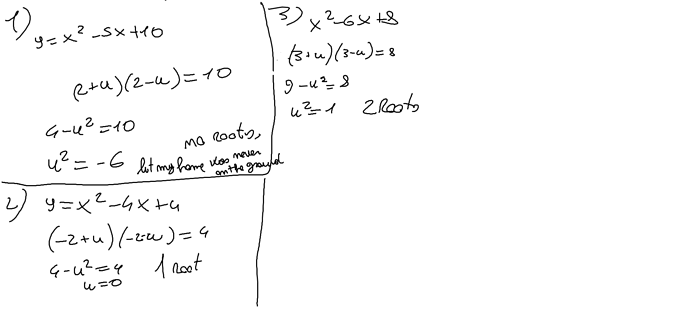More and more challenging! 
-
y = x^2 - 5x + 10
(-5/2 - u)(-5/2 + u) = 10
25/4 - u^2 = 10
u^2 = 25/4 - 10 = (25 - 40)/4 = - 15/4
u = sqrt(- 15/4)
=> Zero roots -
y = x^2 - 4x + 4
(-2 - u)(-2 + u) = 4
4 - u^2 = 4
u^2 = 0
u = 0
=> One root (x = 0) -
y = x^2 - 6x + 8
(-3 - u)(-3 + u) = 8
9 - u^2 = 8
u^2 = 9 - 8 = 1
u = sqrt(1) = 1
=> Two roots (x = -4, x = -2)




